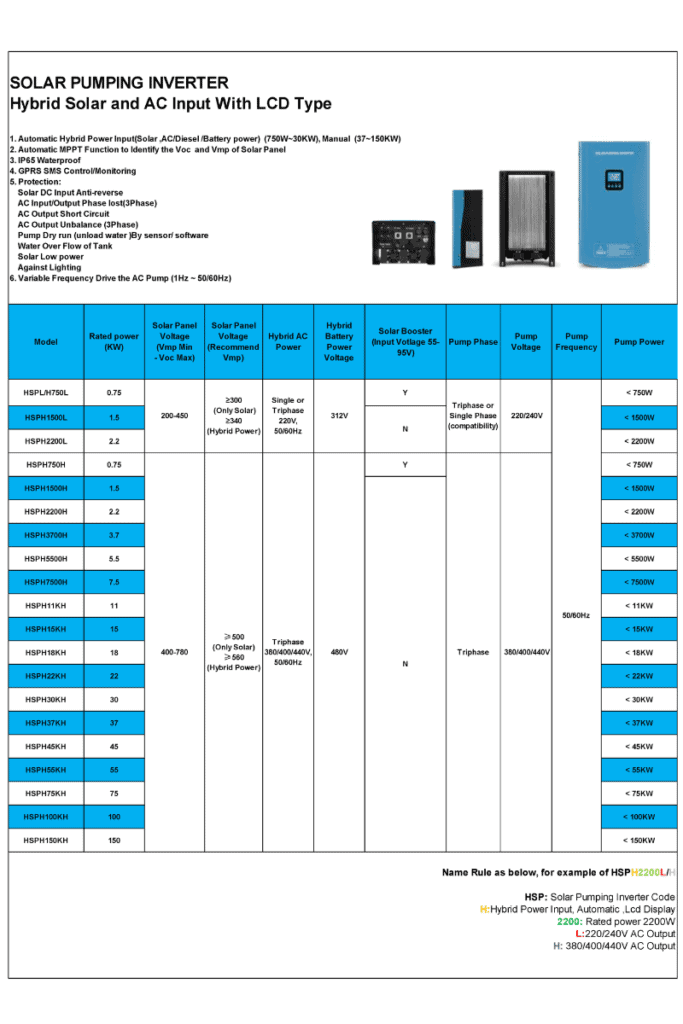Solar energy has become an increasingly popular energy source for homeowners and businesses alike. Solar system is becoming improtant for different people.When it comes to solar, the inverter is a critical component for converting direct current (DC) from the solar panel into alternating current (AC). This AC power can then be used to power your home or business. With so many inverters available on the market, it can be overwhelming knowing which one is best for your needs. Let’s take a look at some of the features and considerations that you should keep in mind when choosing an inverter for your solar installation.
Solar Inverter Size and Power Rating
Inverters come in different sizes and with different power ratings, so it’s important to choose one that is the right size and power rating for your system. A larger inverter will be able to handle more power and may be necessary if you have a larger solar panel array or other loads that require more power. On the other hand, a smaller inverter might be sufficient if you only have a few solar panels or are just starting out with solar energy.For example:Newpro solar has different types of solar inverter.

Solar Inverter Efficiency
The efficiency of an inverter can make a big difference in how much electricity your system produces over its lifetime. An efficient inverter will convert more of the energy from your solar panels into usable electricity, while an inefficient one will waste some of this energy as heat. Look for an inverter with high efficiency ratings from reputable manufacturers.
Solar Inverter Safety Features
Safety should always be a top priority when choosing any type of electrical equipment, especially when dealing with potentially dangerous voltages and currents like those produced by solar panels. Look for inverters that come with built-in safety features such as surge protection, overcurrent protection, and ground fault circuit interrupters (GFCIs). These features can help protect both your property and personnel from potentially hazardous conditions.
Conclusion:
Selecting an appropriate inverter can be tricky because there are so many factors involved in making a decision—from size and type of inverter, right through to its overall efficiency rating. However, by taking these factors into consideration when selecting an appropriate model for your system, you will ensure that you get maximum performance out of your solar installation! By understanding what features each type of inverter offers as well as their respective pros and cons, choosing an ideal model should become much easier!
